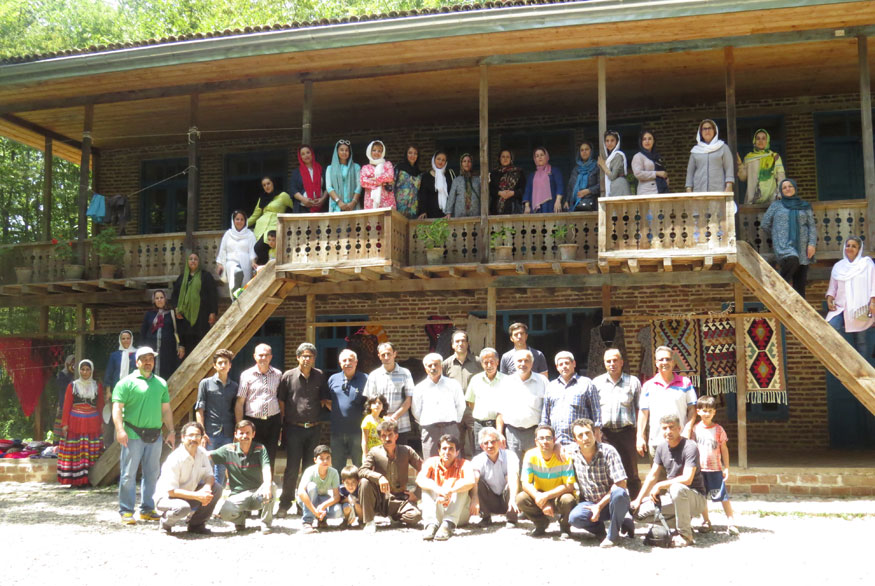Chow Hang Tung, a Man of Actions on Belief
Na Hyun-pil, Korean House for International Solidarity
I would like to introduce Mr. Chow Hang Tung, the Gwangju Prize for Human Rights winner this year, by starting with the story of his relationship with Korea. Most of our readers may still remember that many workers were victimized by occupational disasters at Samsung Electronics and civic groups, such as Banolim, have long protested to resolve this issue. The press conference held in front of Samsung Electronics, on June 20, 2012, was one such occasion, where participants at the Global Strategy Meeting on Sustainable Electronics Industry gathered along with Banolim to denounce the electronics giant. Chow Hang Tung was there, too.
At that time, he was a labor activist himself and came to Korea in solidarity with those victims. Human rights issues were brought to his attention while he was studying in the UK. After returning to Hong Kong, he joined the “Labor Action China” where he investigated labor rights violations and took counteractions to address them. Then he began to pay attention also to human rights violations by multinational corporations in other Asian countries, like South Korea and Japan and became an active member of the Asian Transnational Corporation Monitoring Network. It was at the meeting of the Network held in Taiwan that I first encountered him in 2011. Hang Tung was aggressively involved in collaboration with Korean activists to address such issues as occupational disasters at Samsung Electronics and layoff at Ssangyong Motors. Later he turned himself into a human rights lawyer, no longer involved in labor movements, but we’ve been still friends sparing time to meet every year. We are eight years apart but getting to know him as a friend has been indeed a blessing for me.
As a human rights lawyer, Mr. Hang Tung fought for democracy and human rights in China. He was the deputy head of the Hong Kong Alliance in Support of Patriotic Democratic Movements of China that led candlelight vigils at Victoria Park, Hong Kong every June 4, in commemoration of the Tiananmen Square protests on June 4, 1989. Massive rallies began in Hong Kong in June 2019 protesting against the extradition bill that allowed sending criminals back to China. Korean activists put up intense movements across Korea, including Gwangju, in solidarity with Hong Kong protestors. I myself flew to Hong Kong to join the rallies in November 2019 where I had a chance to meet Mr. Hang Tung after a long while. He expressed concerns that these protests should not simply be a boycott against China to pursue democracy in Hong Kong. Later I learned he came under harsh criticism for holding the view as such.
The Hong Kong authorities banned candlelight vigils in the run-up to June 4, 2021. The official reason for banning candlelight vigils was quarantine for the COVID-19 pandemic but the truth is that the National Security Law enacted after the rallies in 2019 strictly prohibited any assemblies protesting against the authorities in Hong Kong and China. The ban, however, could not keep Mr. Hang Tung from organizing candlelight vigils and he was arrested in the morning on June 4. That was the beginning of repeated probations and imprisonments and his steadfast commitment touched the hearts of many in Hong Kong. Labor unions and civic groups in Hong Kong decided to disband after the enactment of the National Security Law but Mr. Hang Tung appealed from the prison that they should not give up even without fighting back. He even firmly turned down the offer of the Hong Kong authorities that they would allow his probation on the condition that he should not participate in any external activities or make official remarks after release. Everyone was keeping silent at that time as if Hong Kong was virtually under martial law but Mr. Hang Tung refused to keep quiet and continued his courageous protests like a candlelight guiding democracy.
Legal battles have yet to be over and Mr. Hang Tung is fighting back his indictment pinpointing evey unjustifiable ground. And he still keeps learning. Once I got a call from one of his acquaintances asking me to recommend him good materials to read about Korea’s democracy while in prison. It is uncertain when I will get to see him again but I know for certain that Mr. Hang Tung is a man who keeps learning and lives what he believes is right. As a labor activist, human rights lawyer, and even prisoner of conscience today who earns international recognition, Mr. Hang Tung has always devoted himself to a greater cause, and I have confidence in him and the track record of his life as such.



